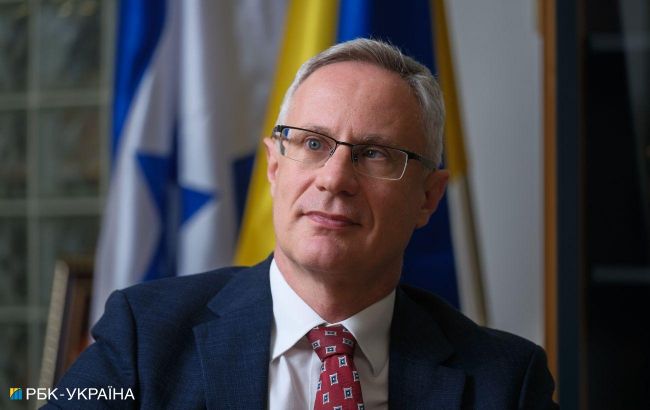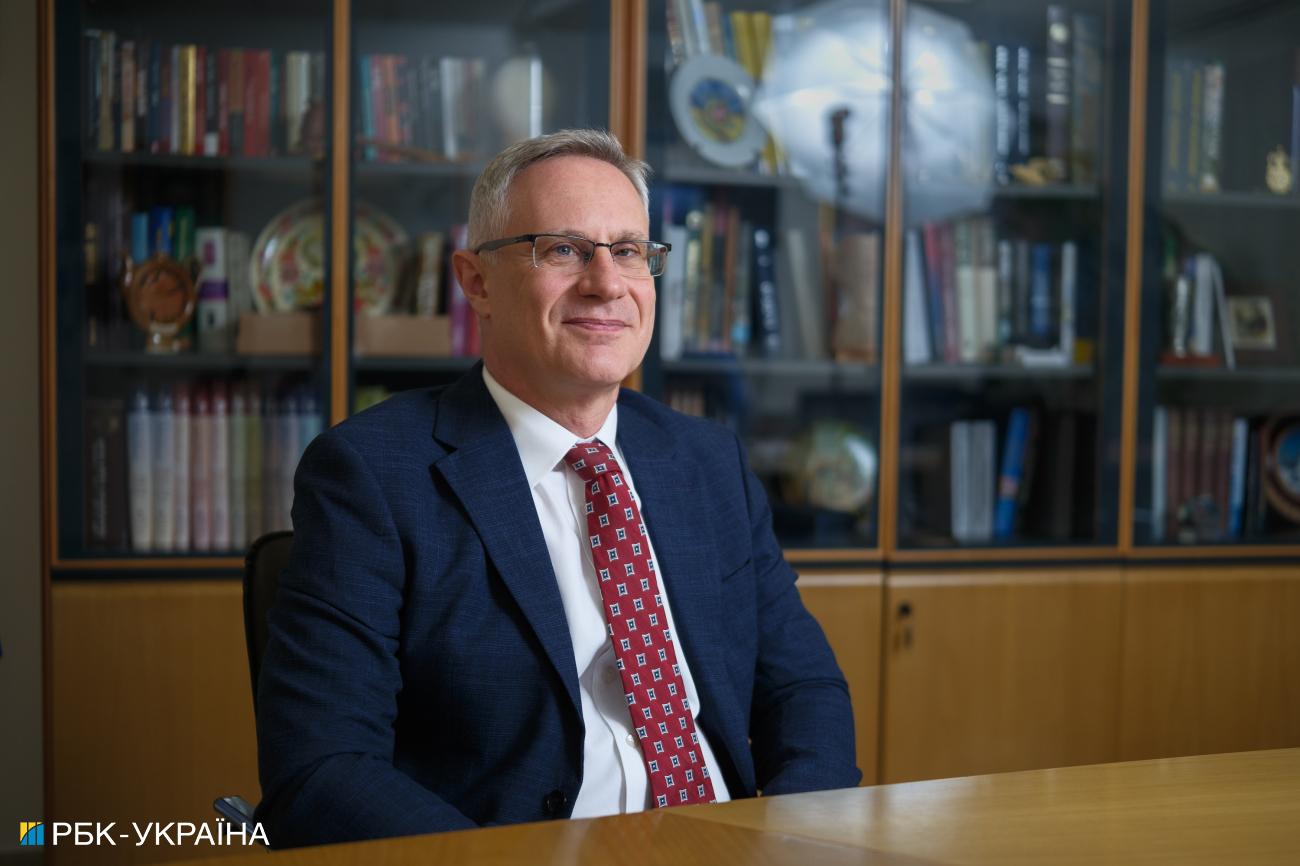Ambassador Michael Brodsky: 'Israel is not interested in a large war in the Middle East'
 Photo: Michael Brodsky, Ambassador of Israel in Ukraine (all photos: Vitalii Nosach/RBC-Ukraine)
Photo: Michael Brodsky, Ambassador of Israel in Ukraine (all photos: Vitalii Nosach/RBC-Ukraine)
Michael Brodsky, Ambassador of Israel in Ukraine, discusses the possibility of a major war in the Middle East, the relations between Israel, the US, and Ukraine, and the upcoming arrival of Hasidim and Ukrainian refugees in an interview with RBC-Ukraine.
Military actions in the Gaza Strip have become as routine for the world as the war in Ukraine. Attention only increases during periods of sharp escalation. The Middle East is currently at such a moment – after the elimination of one of the leaders of the terrorist organization Hamas, Ismail Haniyeh, in Tehran, Iran has promised stern retaliatory measures' against Israel for several days. These may likely involve Iranian proxy forces in the region, primarily Hezbollah stationed in Lebanon.
So, RBC-Ukraine began the conversation with Michael Brodsky by discussing the threats of a major war.
Here are the key takeaways from the conversation with the Ambassador.
On the major war in the Middle East
According to Brodsky, the risk of a large-scale armed conflict in the region has always existed, and Israel is prepared for any developments, including a possible war on multiple fronts: with Iran itself, terrorists from Hamas and Hezbollah, and other pro-Iranian forces in the region.

"We are not interested in a large war in the Middle East. We hope that both Iran and Hezbollah are also not interested, because they would certainly pay a very high price for a full-scale attack on Israel," the Ambassador emphasizes.
According to Brodsky, Lebanon will also have to pay a price as a country whose territory Hezbollah uses to launch attacks on Israel.
On the world's attitude toward Israel
Immediately after the Hamas terrorists' attack on October 7 last year, almost the entire world showed solidarity with Israel, but over time, with the start of hostilities in the Gaza Strip, Western attitudes significantly changed.
"Unfortunately, the world loves dead Jews, loves it when Jews suffer, and is ready to show sympathy. And they don't like it when Israel fights back and tries to defend itself. Unfortunately, we live in the Middle East in a 'villa in the jungle' situation. We are forced to confront forces that operate by 19th-century laws while living in the 21st century. The expectations and norms imposed on us are suitable for the 21st century but not for the 19th century," Brodsky comments.
The Ambassador explains that due to the nature of terrorist activity - where terrorists use civilians as cover - it is unfortunately impossible to completely avoid civilian casualties. "Israel has never aimed to harm the civilian population of the Gaza Strip," says Brodsky.
On the Israel-USA relations
Despite years of close cooperation, relations between the USA and Israel have not always been ideal. In particular, attempts by the current White House administration to somewhat restrain Israeli operations in the Gaza Strip have encountered a firm Israeli "no."
"It is important to understand the history of relations between Israel and the United States. Our support in the USA is not only from the White House; it is very deep support that permeates all layers of society, all parties, Congress, and public institutions," says Ambassador Brodsky. He adds that the relationship between America and Israel is bilateral: Israel is largely dependent on the USA, but at the same time, the country has strategic value for the Americans.
"Of course, the personality of the US President influences, including international relations and relations with Israel, but I cannot say that Israel's security depends solely on who the current US President is; it does not," says Brodsky.
On the Israel-Ukraine relations
According to Brodsky, the majority of Israeli society continues to support Ukraine in its fight against Russian aggression. At the same time, the Ambassador claims that even before the start of the small war in Ukraine, its government made some mistakes in relations with Israel, particularly, "there were attempts to communicate through media and ultimatums," but, according to him, "this does not work with Israel."
He agrees that the relations between the two countries are better now than they were two years ago. "This has been facilitated by the worsening situation in the Middle East and by the fact that both Ukraine and Israel are occupied with their wars. And I hope that Ukraine has come to understand how to build relations with Israel," says Brodsky.

According to the Ambassador, Israel noticed and appreciated Ukraine's support immediately after the Hamas attack last year - from both the government and the Ukrainian society. "Ukraine is one of the most pro-Israel countries in Europe," says Brodsky.
He adds that Israeli officials would be pleased to welcome Ukrainian President Volodymyr Zelenskyy at any time. Moreover, a preliminary date for such a visit was once set, but later, at the initiative of the Ukrainian side, it was postponed.
Some time ago, there was information that negotiations were underway between the USA, Ukraine, and Israel about transferring eight Patriot air defense systems. Israel was to transfer them to the USA, and the USA to Ukraine. But, according to Brodsky, a decision on this has not yet been made. The issue is that due to the threats of large-scale aggression against Israel from various countries and groups, the country itself will need all the air defense systems it has.

